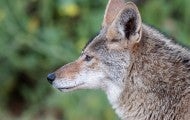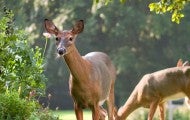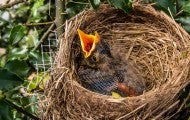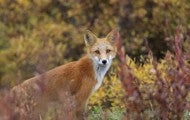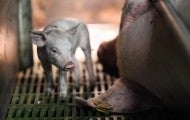By some human standards, my pond is a hot mess. Underneath and around the water lilies are fallen leaves, branches and other debris of decomposing plants. Along the edges, sea oats, sedges and swamp sunflowers hug the rocks. But if humans are picky in their desire for orderliness, frogs are just as...
Springfield, ILLINOIS─Today, the Humane Society of the United States released the shocking results of a February 2023 undercover investigation at Nuggets Night Vision Coyote Hunt, a wildlife killing contest in Mendon, Illinois. The HSUS investigator attended the weigh-in event that followed the 45...
CARSON CITY, Nevada─Today, the Humane Society of the United States released the disturbing results of two January 2023 undercover investigations of wildlife killing contests in Nevada, demonstrating the need for a state law to ban them. The HSUS investigator attended the contest weigh-ins at which...
If you spot a coyote in your neighborhood, relax: Most coyotes avoid people. “Seeing a coyote out during the day is not a cause for alarm, especially in the spring and summer when they’re out looking for food for their pups,” says Lynsey White, HSUS director of humane wildlife conflict resolution...
Animals with fur suffer immensely in the name of "fashion." Fortunately, more and more brands, designers and retailers are going fur-free. The companies listed below have announced that they don't sell animal fur or are phasing in a fur-free policy. (Please note that leather and shearling are not...
Around the world, animals used for meat, eggs and dairy often suffer on factory farms where they are treated as units of production rather than living, feeling creatures. The Humane Society of the United States and Humane Society International present comprehensive reports on animal agribusiness and...


